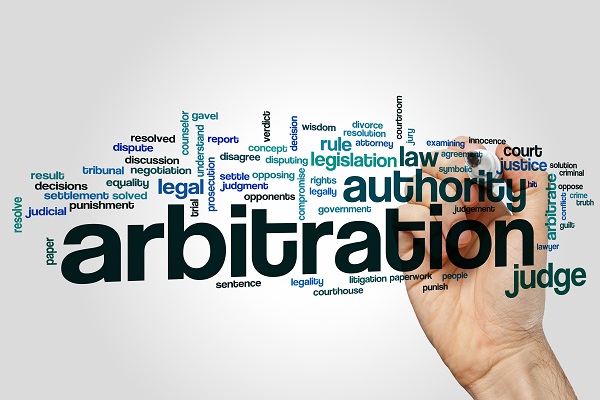The U.S. Court of Appeals for the Seventh Circuit held that a plaintiff’s oral testimony that a $100 payment was demanded of her in violation of the federal Fair Debt Collection Practices Act (FDCPA) was insufficient to withstand summary judgment where the debt collector defendant produced documentary evidence to support its testimony that no such demand was made. Accordingly, the Seventh Circuit affirmed the ruling of the trial court granting summary judgment in favor of the defendant. A copy of the opinion in Duncan v. Asset Recovery Specialists, Inc. is available at: Link to Opinion. After the plaintiff fell behind on her…
The U.S. Court of Appeals for the First Circuit recently affirmed dismissal of a borrower’s state and federal law claims, concluding that the trial court lacked jurisdiction under the Rooker-Feldman doctrine, because the borrower’s federal suit sought to invalidate the state courts’ judgments. A copy of the opinion in Klimowicz v. Deutsche Bank National Trust Company is available at: Link to Opinion. After a borrower defaulted on her mortgage loan, the assignee to the borrower’s mortgage (“mortgagee”) filed a petition in the Massachusetts Land Court to foreclose the mortgaged property. Final judgment was entered in the mortgagee’s favor, and the property was…
The U.S. Court of Appeals for the Eleventh Circuit recently affirmed a class settlement where the defendant allegedly violated the federal Fair and Accurate Credit Transactions Act (FACTA) by printing point-of-sale credit card receipts that included more than the last five digits of the card number. In so ruling, and over the objections of two class members, the Eleventh Circuit held that : Consistent with similar prior rulings from other federal appellate courts, the named plaintiff had Spokeo standing to pursue the claims, because the FACTA claims were similar to the common law tort of breach of confidence; and Class…
The Supreme Court of Missouri recently affirmed the denial of a lender’s motion to compel arbitration of a consumer’s putative class claims because the arbitration provision at issue designated the use of a specific arbitrator which was no longer available to handle creditor claims. A copy of the opinion in A-1 Premium Acceptance, Inc. v. Hunter is available at: Link to Opinion. Following the borrower’s default under a small personal loan, the lender brought an action in Missouri state court for collection of the debt. The borrower filed counterclaims against the lender for alleged violations of the Missouri consumer protection statute and requested…
The Supreme Court of Florida recently held that the Florida Legislature’s 2013 amendment of the Florida Rules of Evidence adopting the federal Daubert standard for admitting expert testimony was unconstitutional. In so ruling, the Court returned Florida to the Frye standard for admitting expert testimony. A copy of the opinion in Richard DeLisle v. Crane Co., et al. is available at: Link to Opinion. The case involved the admissibility of expert testimony in a plaintiff’s personal injury action against several cigarette manufacturer defendants. The plaintiff used multiple experts to establish that smoking cigarettes caused his cancer. The trial court examined the admissibility…
The U.S. Court of Appeals for the Seventh Circuit held that the plaintiffs failed to prove a violation of the federal Equal Credit Opportunity Act (ECOA) under a disparate treatment theory where their only evidence was a vague statement from one of the defendant’s employees. Accordingly, the Seventh Circuit affirmed the ruling of the trial court granting summary judgment in favor of the defendant. A copy of the opinion in Mario Sims v. New Penn Financial LLC is available at: Link to Opinion. The plaintiffs, an African-American couple, purchased a home from the seller in October 2008 for $185,000. The plaintiffs…
The U.S. Court of Appeals for the Ninth Circuit held that the trial court erred in awarding $8.7 million in attorneys’ fees in a class action settlement because it did not treat $20 credits issued as part of the settlement as “coupons” under the Class Action Fairness Act (CAFA). In so ruling, the Court held that, because the trial court included the full face value of the coupons in its calculation of the fee award, the “error require[d] recalculation of the fee award.” Accordingly, the Ninth Circuit vacated the trial court’s attorneys’ fee award. A copy of the opinion in…
The U.S. Court of Appeals for the Fifth Circuit recently held that a purported defect in the assignment of a security instrument — that it was executed solely as “nominee,” and not as beneficiary – did not affect the rights of the beneficiary and its successors and assigns to foreclose the subject property, and entered judgment in favor of the mortgagee. A copy of the opinion in Deutsche Bank National Trust Company v. Burke is available at: Link to Opinion. In May 2007, a lender extended a mortgage loan, evidenced by a promissory note executed by the borrower and secured…
The U.S. Court of Appeals for the Eleventh Circuit recently affirmed the dismissal of consolidated putative class action cases against mortgage loan servicers and an insurance company, holding that the filed-rate doctrine barred the plaintiffs’ claims. A copy of the opinion in Pankaj Patel, et al v. Specialized Loan Servicing, LLC, et al is available at: Link to Opinion. The plaintiffs in the two trial court cases, consolidated on appeal, alleged that their mortgage loan servicers breached the loan documents and the implied covenant of good faith and fair dealing by supposedly overcharging for “force-placed” insurance (FPI) when the borrowers failed…
The U.S. Court of Appeals for the Third Circuit held that a statement in a letter to the effect that forgiveness of the debt “might” be reported to the Internal Revenue Service may constitute a violation of the federal Fair Debt Collection Practices Act (FDCPA). In so ruling, the Court reiterated that “even if the language in a letter is true, it can still be deceptive where ‘it can be reasonably read to have two or more different meanings, one of which is inaccurate.’” Accordingly, the Third Circuit reversed the trial court’s dismissal of the action and remanded for further…
The U.S. Court of Appeals for the Eleventh Circuit recently rejected an attempt by homeowners to collaterally attack a state court mortgage foreclosure judgment, affirming the trial court’s dismissal of an amended complaint with prejudice for failure to state a claim, but on alternative grounds. More specifically, the Court upheld the dismissal on the grounds that, “by attempting to prosecute an incomprehensible pleading to judgment, the plaintiffs obstructed the due administration of justice” in the trial court, and by trying to defend the fatally defective complaint on appeal. The Court also ordered plaintiffs’ counsel to show cause why he should…
The U.S. Court of Appeals for the Eighth Circuit held that a plaintiff could not defeat federal jurisdiction under the Class Action Fairness Act based on a pre-class certification damages stipulation limiting attorney’s fees to ensure that the amount in controversy remained under CAFA’s $5 million jurisdictional limit. In so ruling, the Eighth Circuit affirmed the trial court’s finding that the amount in controversy for jurisdiction under CAFA includes the amount of future attorney’s fees based on the expected length of the litigation, the risks and complexity involved, and the hourly rates charged. A copy of the opinion in Faltermeier v. FCA US…












